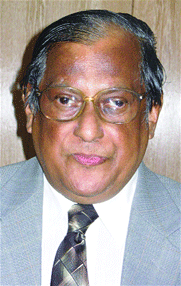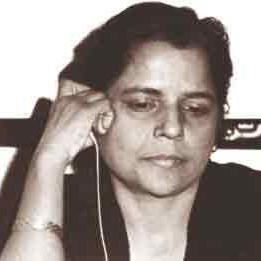Related Research Articles

Muhammad Yunus is a Bangladeshi economist, entrepreneur, politician, and civil society leader, who has been serving as Chief Adviser of the Interim Government of Bangladesh since 8 August 2024. Yunus was awarded the Nobel Peace Prize in 2006 for founding the Grameen Bank and pioneering the concepts of microcredit and microfinance. Yunus has received several other national and international honors, including the United States Presidential Medal of Freedom in 2009 and the Congressional Gold Medal in 2010. Yunus is one of only seven people in the world to have received all of these awards.

The Institute of Business Administration of the University of Dhaka, commonly known as IBA, is a business school located in Dhaka, Bangladesh. It's widely hailed as the most prestigious business school and one of the best educational institutes in the country.

The Bangla Academy is the official regulatory body of the Bengali language in Bangladesh. It is an autonomous institution funded by the Government of Bangladesh that fosters the Bengali language, literature and culture, works to develop and implement national language policy and conducts original research in Bengali. Established in 1955, it is located in the Burdwan House in Shahbagh, Dhaka, within the grounds of the University of Dhaka and Suhrawardy Udyan. The Bangla Academy hosts the annual Ekushey Book Fair.

Rehman Sobhan is a Bangladeshi economist. Regarded as one of the country's top public thinkers, he is the founder of the Centre for Policy Dialogue. Sobhan is an icon of the Bangladeshi independence movement due to his role as a spokesman of the Provisional Government of Bangladesh in the United States during the Bangladesh Liberation War. He was awarded the Independence Day Award, Bangladesh's highest civilian honour, in 2008.

The Cinema of Bangladesh, also known as Bangla cinema, is a diverse and vibrant entity, consisting of films produced across various regions in Bangladesh, each contributing its unique linguistic and cultural perspective. Beyond the dominant Dhaka based Bengali-language film industry Dhallywood, which is a portmanteau of "Dhaka" and "Hollywood", Bangladesh is home to cinema in several other languages and dialects. For instance, Chakma cinema from Bandarban, Garo cinema from Sherpur, Meitei and Sylheti cinema from Sylhet, Chatgaiya cinema from Chattogram. These regional cinemas play a crucial role in preserving and promoting the linguistic and cultural heritage of the country. The dominant style of Bangladeshi cinema is melodramatic cinema, which developed from 1947 to 1990 and characterizes most films to this day. Cinema was introduced in Bangladesh in 1898 by the Bradford Bioscope Company, credited to have arranged the first film release in Bangladesh. Between 1913 and 1914, the first production company, Picture House, was opened. A 1928 short silent film titled Sukumari was the first Bengali-produced film in the region. The first full-length film, The Last Kiss, was released in 1931.

Mymensingh Zilla School (MZS) is a boys' public secondary school in Mymensingh, Bangladesh. The school was established as Hardinge School during the British Raj in 1846 and got the name Mymensingh Zilla School on 3 November 1853.

Akbar Ali Khan was a Bangladeshi economist and educationist who served as a bureaucrat until 2001. He was a sub-divisional officer of Habiganj during the Bangladesh Liberation War when he decided to join the war. Later he served as an official of the Mujibnagar Government. After independence, he rejoined the civil service and reached the highest post of Cabinet Secretary. In the meanwhile, he also worked as a university teacher. Towards the end of 2006, he became one of the advisers of the Caretaker Government led by President Iajuddin Ahmed. He resigned along with three other advisers, namely, Hasan Mashhud Chowdhury, C M Shafi Sami and Sultana Kamal on the grounds of dissatisfaction with President Dr. Iajuddin Ahmed caretaker government. According to them, there was no scope to contribute in the caretaker government to create a congenial atmosphere for holding a free and fair election. In October 2007, the Government of Bangladesh constituted a Regulatory Reforms Commission (RRC) with him as the chair.

Mirza Fakhrul Islam Alamgir is a Bangladeshi politician. He has been the secretary general of the Bangladesh Nationalist Party (BNP) since 2016. He was a member of the parliament for Thakurgaon-1 constituency from 2001 to 2006. In that term, he was also appointed the Minister of State in charge of the Ministry of Agriculture and later Ministry of Civil Aviation and Tourism.

Khan Sarwar Murshid was a Bangladeshi educationist, diplomat and intellectual.

Nurjahan Murshid was a journalist and teacher, a Bangladesh cabinet minister, and social activist.

Salehuddin Ahmed is a Bangladeshi economist, civil servant, and a former governor of the Bangladesh Bank, the country's central bank. He is a professor of BRAC University. He has been serving as an adviser to the interim government of Bangladesh since August 2024.

Ali Amjad's Clock is the oldest clock tower of Bangladesh and lies on the north bank of the Surma River in the northeastern city of Sylhet. The tower was founded by Nawab Ali Ahmad Khan of Prithimpassa in 1872 and named after his son, Nawab Ali Amjad Khan. It is a popular tourist attraction adjacent to the Keane Bridge and is often used in the establishing shot of films set in Sylhet.

Shahidur Rahman Chowdhury , known by his nickname Shantoo, is a former Bangladeshi football player and manager.
Raba Khan is a Bangladeshi comedian, vlogger, model, singer, and author. She is known for her satirical commentary on everyday life in Bangladesh. She is a radio jockey at ABC Radio. In 2020, Raba was featured in Forbes' 30 Under 30 Asia list in the Media, Marketing & Advertising category. She is a UNICEF Youth Ambassador and has worked to advocate for children's rights. In 2019, she published a book, Bandhobi, written in an informal combination of Bangla and English.

Sharmeen Murshid is a member of the advisory council of the Bangladesh interim government. She was chief executive officer of human rights organization Brotee which has been working for the rights of marginalized groups, especially the indigenous people since 2001. She is currently serving as Adviser to the Ministry of Women and Children Affairs as well as Ministry of Social Welfare. Murshid is a former Commissioner of the National River Conservation Commission.

Niaz Ahmed Khan is a Bangladeshi academic, researcher, and development practitioner who is the 30th vice-chancellor of the University of Dhaka (DU). Prior to this, he served as the pro vice-chancellor of Independent University, Bangladesh and was a professor at the University of Dhaka and the University of Chittagong.
Jamal Uddin Ahmed is a Bangladeshi banker and former chairperson of Janata Bank, second largest state owned commercial bank in Bangladesh. He is the general secretary of Bangladesh Economic Association.
Bazlul Haque Khondker is a Bangladeshi economist and professor of the Department of Economics at the University of Dhaka. He is the Chairperson of the South Asian Network on Economic Modeling (SANEM). He is the vice-chairperson of Research and Policy Integration for Development (RAPID). He is a director of Policy Research Institute of Bangladesh.
References
- ↑ "Economic growth needs to be more closely linked to the rural economy: KAS Murshid". The Business Standard. 2019-09-30. Retrieved 2024-08-31.
- ↑ "Khan Ahmed Sayeed Murshid, PhD". www.primebank.com.bd. Retrieved 2024-08-31.
- ↑ "The True Optimist". ICE Business Times. 2015-09-01. Retrieved 2024-08-31.
- ↑ প্রতিবেদক, নিজস্ব (2024-08-09). "শারমিন মুরশিদ". Prothomalo (in Bengali). Retrieved 2024-08-31.
- 1 2 3 4 Haque, Junaidul (2012-12-22). "The passing of an icon". The Daily Star. Retrieved 2024-08-31.
- 1 2 3 4 "BIDS gets new director general". The Daily Star. 2015-04-09. Retrieved 2024-08-31.
- 1 2 "Dr. Khan Ahmed Sayeed Murshid-Asian Institute of Diplomacy and International Affairs". www.aidiaasia.org. Retrieved 2024-08-31.
- ↑ "LDC Graduation of Bangladesh Moving Towards a Smooth Transition: Dr. K A S Murshid". Elets eGov. 2019-10-10. Retrieved 2024-08-31.
- ↑ Iqbal, Kazi; Yunus, Mohammad (1 January 2010). Murshid, K. A. S. (ed.). Challenges in Boosting International Migration from Bangladesh. ASIN: B007WPG5TG. Dhaka, Bangladesh: Bangladesh Institute of Development Studies.
- ↑ "এত বিভক্তি ভালো নয় : কে এ এস মুরশিদ". Prothomalo (in Bengali). 2016-05-22. Retrieved 2024-08-31.
- ↑ Yunus, Khan Ahmed Sayeed Murshid and Muhammad (2018). Rice prices and growth, and poverty reduction in Bangladesh. FAO. ISBN 978-92-5-130107-4.
- ↑ Dhali, Bari (1 April 2021). "Dr Binayak Sen to take helm of BIDS". Dhaka Tribune . Retrieved 31 August 2021.
- ↑ "BIDS among top 100 global think tanks". The Business Standard. 2021-01-29. Retrieved 2024-08-31.
- ↑ "Securing Food For All in Bangladesh". The University Press Limited. Retrieved 2024-08-31.
- ↑ "Agricultural Transformation and Rural Poverty in Bangladesh: Essays in Memory of Dr. Mahabub Hossain". The University Press Limited. Retrieved 2024-08-31.
- ↑ Murshid, K. A. S. (2022). The Odds Revisited: Political Economy of the Development of Bangladesh. South Asia in the Social Sciences. Cambridge: Cambridge University Press. ISBN 978-1-009-12313-6.
- ↑ "এত উন্নয়নের গান গেয়ে এমন কোরামিন অর্থনীতি কারো কাম্য নয়: কেএএস মুর্শিদ". দ্য মিরর এশিয়া (in Bengali). Retrieved 2024-08-31.
- 1 2 "Live Now: The album coming soon". The Daily Star. Retrieved 2024-08-31.
- ↑ "Wissenschaftskolleg zu Berlin". Tazeen M. Murshid, Ph.D. Retrieved 2024-08-31.
- ↑ "Yunus-led interim govt sworn in". The Daily Star. 2024-08-08. Retrieved 2024-08-08.
- ↑ admin (2007-11-13). "Kumar Murshid: 'I left Labour to get away from corrupting practices'". Socialist Worker. Retrieved 2024-08-31.